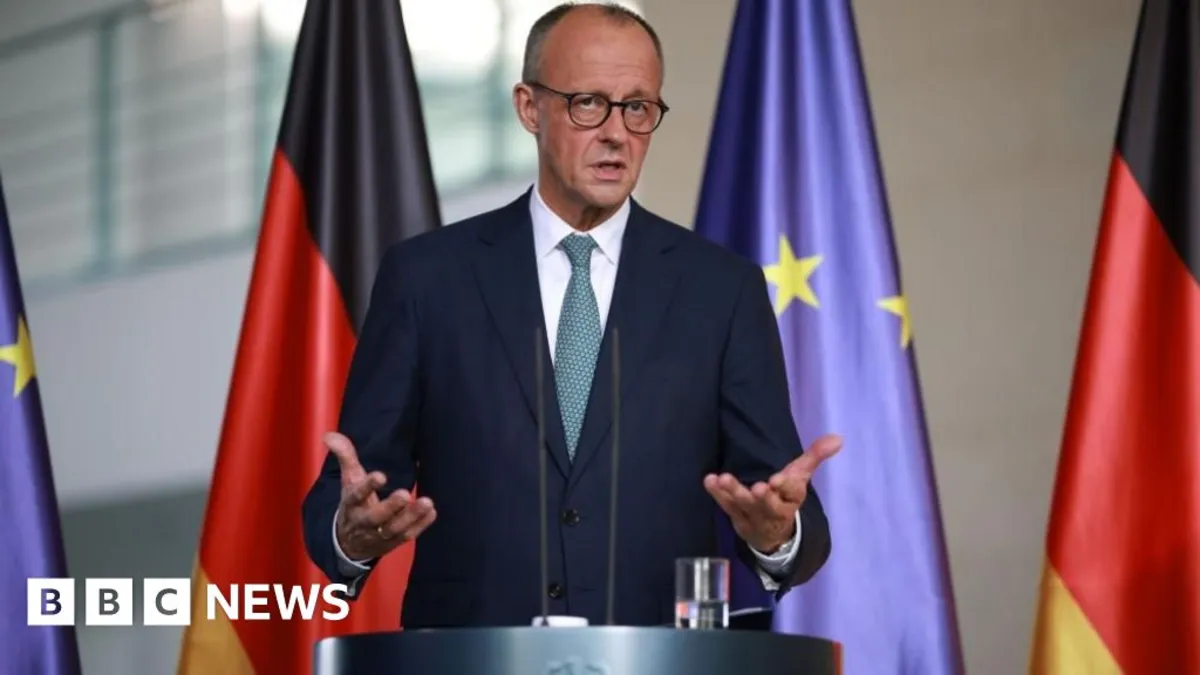
Leaders from Europe’s two largest economies have expressed serious concerns regarding the recent trade deal established between EU chief Ursula von der Leyen and US President Donald Trump. German Chancellor Friedrich Merz articulated fears that the agreement could significantly harm Germany's finances, while French Prime Minister Francois Bayrou described the outcome as a form of submission. The overall sentiment across the European Union (EU) has been decidedly pessimistic, although some member states acknowledged that signing an imbalanced deal was a necessary step to prevent a full-blown trade war.
This new trade deal introduces a 15% tariff on most EU exports to the US, which is half the rate that President Trump had previously threatened. In exchange, Europe has committed to purchasing more American energy and has agreed to reduce taxes on certain imports. Following private discussions held at Trump’s Turnberry golf course in Scotland, von der Leyen hailed the agreement as a significant achievement, while Trump remarked that it would foster closer ties between the US and EU.
Despite the announcement, the deal must still secure the approval of all 27 EU member states, each of which has unique interests and varying degrees of reliance on exports to the US. While no member state has indicated intentions to block the agreement, the mood among European leaders remains subdued. Chancellor Merz warned that both the US and European economies could suffer negative consequences from this deal, while voicing skepticism about the Brussels negotiating team’s ability to achieve more favorable terms against a US president intent on recalibrating relationships with major trading partners.
Bayrou's critique was particularly harsh; he took to social media platform X to express his dismay, stating, “It is a dark day when an alliance of free peoples, brought together to affirm their common values and to defend their common interests, resigns itself to submission.” Additionally, Hungarian Prime Minister Viktor Orban, a known ally of Trump, remarked that the US president had metaphorically “eaten von der Leyen for breakfast.” Spanish Prime Minister Pedro Sanchez indicated his support for the deal but did so without enthusiasm.
Despite the overall dissatisfaction, there was a sense of relief that an agreement had been reached. Finland's Prime Minister noted that the deal would provide much-needed predictability, while Irish Trade Minister Simon Harris highlighted its importance in delivering the certainty essential for jobs, growth, and investment within the EU. At a press conference, EU Trade Commissioner Maros Sefcovic defended the terms of the agreement, stating it was the best deal achievable under the prevailing circumstances. He emphasized the strategic necessity of maintaining strong trade relations with the US, particularly in light of the ongoing Ukraine war.
In the lead-up to the final negotiations, some European leaders had shown interest in applying pressure on Trump through so-called anti-coercion measures, which would restrict US companies’ access to European markets. However, the looming threat of a 30% tariff influenced the EU to secure a deal that, while still damaging, was less severe than initially feared when Trump first proposed import taxes. Von der Leyen attempted to frame the agreement as a win, but by the following day, even Manfred Weber, the leader of her European People's Party, characterized it as damage control.
While the broad framework of the deal has been outlined, finer details will be finalized following subsequent technical discussions. Initial reactions from businesses in the US were similarly subdued. The National Foreign Trade Council in Washington, DC, welcomed any deal that could prevent a trade war, but cautioned that short-term benefits from the 15% tariff might ultimately lead to the US becoming isolated from a key ally and could undermine long-term trust. The council also pointed out that the previous tariff-free system had allowed industries, including aerospace and pharmaceuticals, to thrive on both sides of the Atlantic. The initial deal framework maintains several concerning EU policies, including what critics have labeled a discriminatory digital agenda and unfair pharmaceutical reimbursement policies.